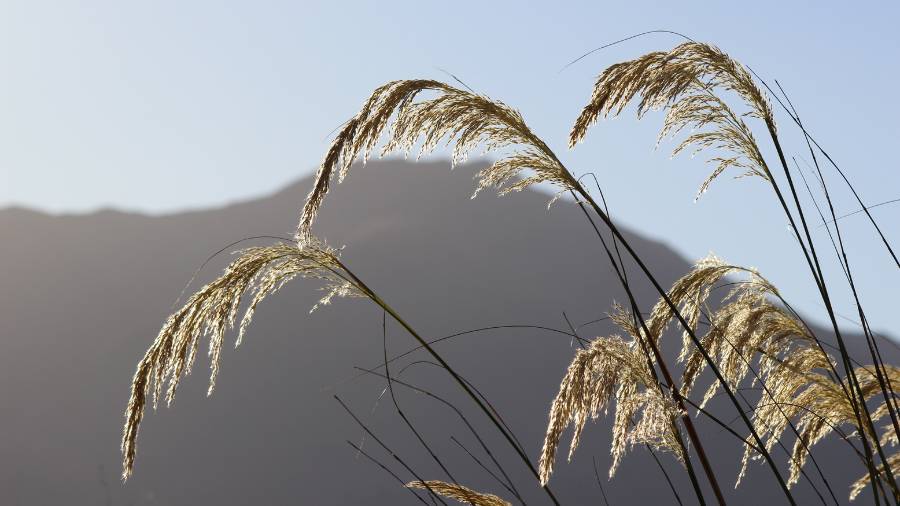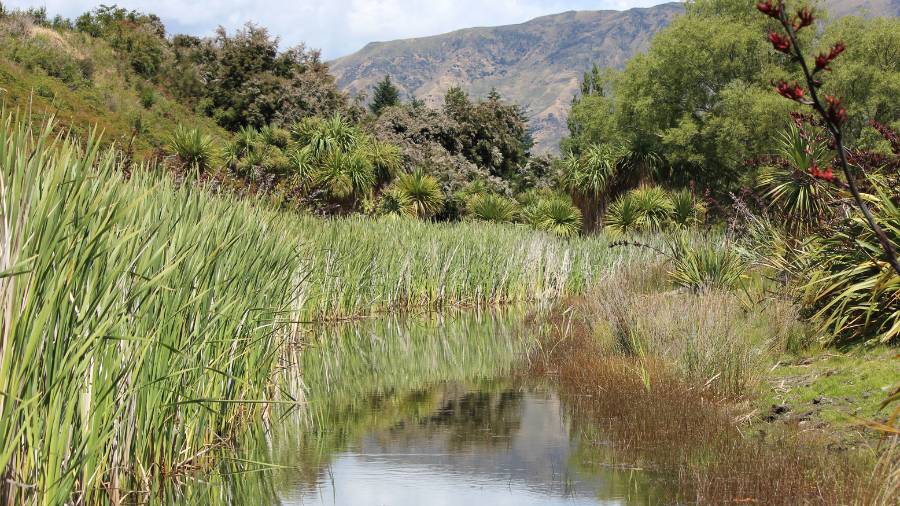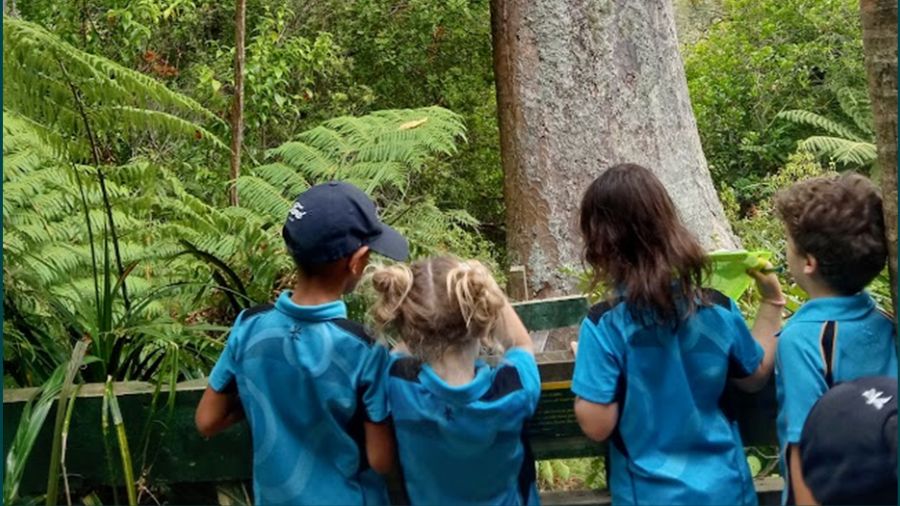In Terms 3 and 4, 2023 we are sending regular newsletters about curriculum and assessment changes, for those who have signed up to receive updates. If you would like to receive these updates then please register here.
Curriculum News #1 focused on Te Mātaiaho and mātauranga Māori, you can read it here.
Sign up to receive newsletters from Te Poutāhū Curriculum Centre to make sure you hear about things as soon as they change or become available. You can choose your preferences, including early learning and NCEA specific newsletters.
Curriculum News #2: Secondary Education
September 18th, written by Becky McCormack (NZAEE)
This email update has a focus on the changes happening in secondary education, including both the NCEA changes and curriculum refresh. There's a lot of information, so we've decided to focus on the key overarching changes and some more specific links for Social Sciences and Sciences only.
More coming soon for Technology, English, Health, Outdoor Education, and Art.
You can also find lots of resources and stories in our Secondary Education Spotlight.
Here's an overview of the key sections in this update:
- Upcoming Opportunities
- Curriculum & Assessment Changes: Timeframes and overlaps
- What does this mean for Education for Sustainability?
- Social Sciences and Sciences sample materials: environmental contexts
As a former secondary Science teacher, I feel hopeful and excited about the focus on mātauranga Māori and local environmental issues, with clear opportunities for integration across subjects and student-led action.
Climate change, waterway health, biodiversity, kaitiakitanga, local action and the interconnectedness of humans and nature feature within many learning areas at Level 1, reinforcing the importance of support from environmental education providers, community projects and reciprocal relationships with mana whenua.
Upcoming Opportunities
Online NCEA Level 1 subject workshops, Sept - Nov Full timetable of subjects & dates here
Facilitated by NCEA Implementation Facilitators (NIFs), these are aimed at kaiako and middle leaders, to help prepare for the implementation of Level 1 NCEA courses next year.
Providers: these workshops are not designed for educators working outside schools, but it's good for you to be aware of them if you're connecting with teachers to help them plan.
Teacher-Only Day, between Nov 13 - 24 Schools choose the date - this is for all schools, including primary, intermediate and secondary. This Ministry-funded day can be used to work on NCEA and curriculum changes. There will be further TODs in 2024.
Providers: This could be a great opportunity to connect with your local schools and find out if teachers would like support to find resources, connect with community projects etc.
NOTE: NCEA exams start on Nov 6th, so secondary teachers will have more flexibility and time to work on planning from this point, if you're planning to get in touch and offer support.
Now we've highlighted these key dates, we'll take a step back and give you a short overview of the changes happening - feel free to skip this part if you're already on top of this!
Curriculum and Assessment Changes: Timeframes and Overlaps
In our first newsletter we focused on Te Mātaiaho the refreshed NZ Curriculum, with a big picture look at opportunities for strengthening environmental education, including te ao Māori, local curriculum and student-centred learning.
The NCEA Change Programme started in 2018, with pilot schools trialing the new standards over the last few years and the new Level 1 NCEA for all subjects implemented next year.
Key changes include (see the full list of changes using the link above):
- Fewer, larger standards - every subject now has 4 achievement standards (2 internal, 2 external), with significant changes to contexts (see next section)
- Equal status for mātauranga Māori - this is a key focus for PLD and resources for all subject areas (see this link)
- Level 1 NCEA remains optional - some schools will design courses based on local curriculum and student interest, rather than focusing on assessment
We're only two years into the six-year programme to refresh our national curriculum, with learning areas being developed at different stages. For secondary schools, this means that the NCEA assessment changes are taking place earlier than the curriculum changes, especially for subjects such as Science, The Arts, Technology, Health & PE and Learning Languages, which are still to be released (see dates below). In an ideal world, curriculum should inform assessment, but teachers and school leaders are doing their best to align these processes as they evolve.
Refreshed Curriculum areas currently available:
English and Maths and Stats - both must be implemented by 2025
Social Sciences - Aotearoa NZ Histories must be implemented now, with the full SS learning area implemented by 2027 (but available for use now)
Refreshed Curriculum Drafts to be released in late 2023:
Science, The Arts, Technology - must be implemented by 2027
Note: the feedback period for these learning areas is from late Oct 2023 - March 2024.
In Development for release in 2025:
Health and Physical Education, Learning Languages - must be implemented by 2027
New Level 1 NCEA Subject Materials for use in 2024:
You can find all of the NCEA subject materials here, by clicking on the NZ Curriculum tab or Te Marautanga o Aotearoa tab, and then choosing the subject from the list.
Each Level 1 subject has a dedicated section, for example here is Science, with tabs for:
- Learning: Whakataukī, Big Ideas and Significant Learning
- Teaching: Sample Course Outlines
- Assessment: Achievement Standards, with links to sample Activities for internals
We explore some of these in the next section, for Social Sciences and Sciences.
At this stage, the updated Level 2 NCEA standards are scheduled to be implemented in 2026 and Level 3 NCEA in 2027.
What does this mean for Education for Sustainability?
Exploring Te Mātaiaho and the new Level 1 NCEA subject materials provides a really hopeful picture for environmental educators and kaiako who are committed to weaving this learning through all levels and subjects.
The progression model should help connect learning across subjects, if we place a focus on the overarching vision for young people and progression statements (see below), alongside whakataukī and big ideas in each learning area. The statements for each learning phase will apply across all learning areas:
Yrs 9 - 10 Te whai ahunga, te manaaki i ētahi atu me te mau tonu ki te manawaroa | Having a purpose and being empathetic and resilient
Yrs 11 - 13 Te whakatere ara me te whakawhanake kahawhiri hei tautoko i te tāraitanga o āpōpō | Navigating pathways and developing agency to help shape the future
- Te Mātaiaho draft, pg. 19
We love the focus on agency and purpose and feel these statements align nicely with key elements of environmental education, including action competence, equity and participation for change.
At the junior level in secondary schools (Years 9 and 10) environmental education is often woven through subject areas such as Social Studies, Science, Health, Technology and Art. Some schools also use integrated projects or courses, allowing students to engage more deeply with local issues and their environment. Te Mātaiaho reinforces strong connections to place, te ao Māori and learning that is relevant, which gives us confidence that teachers will be able to continue and strengthen this work.
Social Sciences
Te ao tangata | Social Sciences includes specific references to the environment, including climate change, in the progress outcome statement for the end of Year 10 (page 20):
Te tūrangawaewae me te taiao | Place and environment
The live-ability of places is influenced by natural and cultural factors. The ways in which people and communities enhance or damage this live-ability is influenced by the resources they have available to them and by their values and perspectives.
Climate change and environmental degradation are impacting inequitably on different communities. Groups are responding locally and internationally as they work towards environmental justice.
At the senior levels (Yrs 11 - 13) for Social Sciences, the curriculum document is quite broad, so it's useful to look at the Big Ideas and Significant Learning for NCEA Level 1 Subjects, such as:
Geography
Big Idea: Te taiao connects people and people connect to te taiao
Course outlines include: climate change in the Pacific, local awa study, beach erosion.
Find more resources and support from the Geography Teacher's website here.
Social Studies
Significant learning: participate in thoughtful social action in response to social issues or opportunities
Course outlines include: extractive industries (mining, fashion), consumerism, significant natural areas.
Access resources and find out about PLD from Aotearoa Social Studies Educators' Network (ASSEN) website here.
History
Big ideas and significant learning includes: power relationships, perspectives, narratives, tūrangawaewae, whakapapa.
Course outlines don't have strong links with environmental contexts, but do include social justice and potential for discussion of kaitiakitanga.
Commerce
Big ideas and significant learning includes: sustainable use of scarce resources, values, kaitiakitanga.
We couldn't find many links to sustainability contexts in the course outlines or activities for the internal assessments, other than engaging with a local charity or marae to investigate solar panels or vehicle purchases. We'd love to see more focus on circular systems, doughnut economics etc. so let us know if your school is heading in this direction!
Education for Sustainability at Levels 2 and 3 will remain as a subject within the Social Sciences learning area but will have a new name, yet to be finalised, and updated assessments in line with the Level 2 NCEA changes.
You can watch a video with more information about Environment and Societies (provisional name) here and we'll let you know when the Level 2 material is available.
Sciences
There are clear links to EEfS within all four of the Level 1 NCEA Science subjects, including a much stronger focus on local environments, biodiversity and water health, compared to existing courses.
Providers: This is an important opportunity to connect with schools, teachers and students who may be looking for authentic local action projects and support with skills such as water health monitoring etc.
Mātauranga Māori concepts present across the Level 1 Sciences include: kaitiakitanga, mauri, the significance of wai for Māori and hauora.
In this last section we have added notes and links to some of the assessments and suggested teaching contexts and resources that support EEFS learning in the Sciences.
Science
Response to a local issue, local investigations, including critical thinking and perspectives. Course outlines include: climate change (sea level rise), waterway health, biodiversity, sustainable energy, plastics/recycling.
Sample Activity for Science 1.1: Healthy Waterways
Sample Activities for Science 1.2: Sea Level on the Rise; and Mahinga Mātaitai
Watch these recorded webinars from NZASE, with teachers from pilot schools:
Webinar recording for Science 1.1 Response to local issue
Webinar recording for Science 1.2 Investigation
Chemistry and Biology
Big Idea: All living things are interconnected
Course outlines include: lake restoration, biodiversity (Te Mana o te Taiao), water and soil health, tuna, kauri dieback.
Sample Activity for Chem & Bio 1.1: Kauri dieback
Physics, Earth & Space Science
Big Idea: Interacting processes within and between Earth’s systems influence the surface, climate, and life on Earth
Course outlines include: climate change, ocean acidification, renewable energy, stream health, deforestation.
Sample Activities for 1.1: Three options , including deforestation, carbon and mining
Agricultural and Horticultural Science
Big Idea: Primary producers make informed decisions about sustainability
Course outlines include: freshwater and marine health, regenerative agriculture; One of the standards is focused on soil management.
1.4 (sustainability) is externally assessed, so no activities are provided, but possible contexts listed are: water, soil, other living things, atmospheric
Teachers can access support and PLD, by visiting the NZ Association for Science Educators (NZASE) website, where you can find dates for upcoming PLD, recorded webinars and links for senior science subject associations.
We'd love to hear from you if you have a story to share or requests for resources about specific aspects of the education change programme.
If you would like to receive these email updates then please register here.






